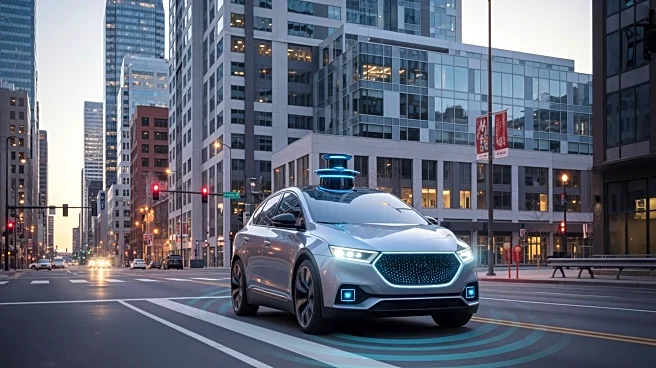What's Happening?
Waymo has introduced its self-driving cars in Denver, marking a significant expansion of autonomous vehicle technology. Despite the technological advancement, Colorado currently lacks independent regulatory oversight for these vehicles. State lawmakers
have permitted tech companies to deploy autonomous vehicles as long as they adhere to traffic rules, a regulatory approach less stringent than those in Arizona and California. Waymo's fleet, consisting of white Jaguars and powder-blue Zeekrs equipped with advanced sensors, has been collecting data in Denver for two months. The company plans to activate public service next year, expanding its operations to more U.S. cities. However, concerns remain regarding data privacy, cybersecurity, and the potential for accidents, as Colorado law prevents local governments from imposing restrictions on autonomous vehicles.
Why It's Important?
The deployment of Waymo's self-driving cars in Denver represents a significant step forward in autonomous vehicle technology, potentially transforming urban transportation. However, the absence of regulatory oversight raises concerns about safety, privacy, and accountability. As autonomous vehicles become more prevalent, the need for comprehensive regulations to address these issues becomes increasingly urgent. The expansion of Waymo's operations could influence transportation policies and urban planning, highlighting the tension between technological innovation and regulatory frameworks. Stakeholders, including government officials, ethicists, and engineers, are grappling with the implications of replacing human decision-making with machine-learning technology.
Beyond the Headlines
The introduction of autonomous vehicles in Denver raises ethical and societal questions about the role of technology in daily life. The lack of public debate and regulatory oversight underscores the challenges of integrating advanced technologies into existing systems. Concerns about data privacy, cybersecurity, and the potential for accidents highlight the need for transparent and accountable governance. As machine-learning technology continues to evolve, the balance between innovation and regulation will be crucial in ensuring public safety and trust in autonomous systems.















